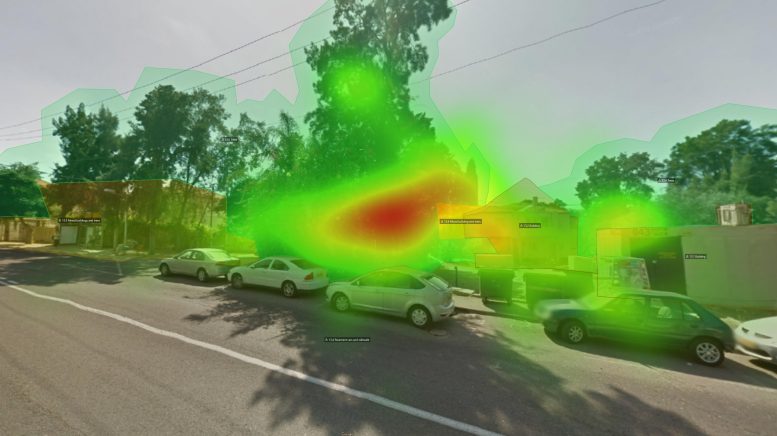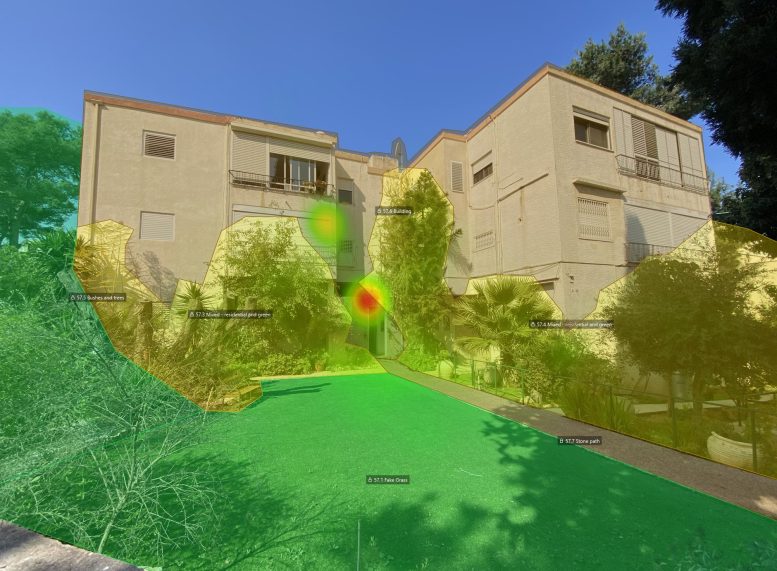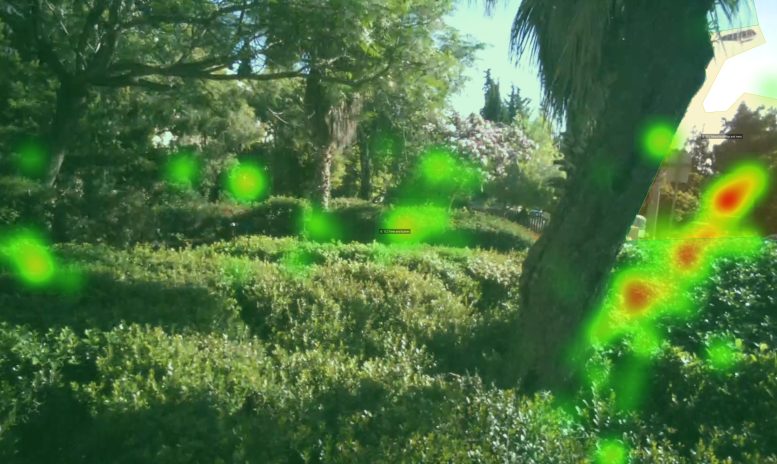
Eye-tracking research from Bangor University and Technion-Israel Institute of Technology shows that focusing on natural elements during urban walks reduces anxiety and enhances feelings of restoration in city dwellers. These findings suggest urban design improvements that incorporate more natural elements could significantly boost urban mental well-being. Credit: SciTechDaily
New eye-tracking research reveals that looking at natural elements during urban walks can significantly benefit mental health.
The study, conducted by Bangor University and Technion-Israel Institute of Technology and published in the journal People and Nature, showed that city-dwellers who focus on greenery instead of human-made structures experience reduced anxiety and increased feelings of restorativeness.
Study Details and Findings
A total of 117 urban residents participated in the study. They embarked on a 45-minute urban walk while wearing eye-tracking glasses. Participants were instructed to focus their gaze on trees, plants, lawns, flowers, man-made structures, or a combination of both. The results showed that focusing on nature, particularly trees, was linked to improvements in mental health metrics such as anxiety levels and feelings of restoration.
Dr. Whitney Fleming, a lecturer in Human Geography at Bangor University, clarified the results by stating, “We found that the individuals who were guided to direct their gaze more frequently at green elements reported a significant reduction in anxiety, with trees showing the most substantial positive effect.”
Urban Design and Mental Health
The findings highlight a strong connection between observing green elements and increased mental well-being, suggesting that even brief interactions with nature can offer mental health advantages. These insights are particularly useful for urban planners and architects. They suggest that incorporating more natural features into city landscapes can significantly enhance the mental well-being of residents. The “Nature Gaze” study supports the concept of designing urban environments that encourage engagement with nature, presenting a straightforward yet effective strategy for improving urban mental health.
Reference: “The nature gaze: Eye-tracking experiment reveals well-being benefits derived from directing visual attention towards elements of nature” by Whitney Fleming, Brian Rizowy and Assaf Shwartz, 4 June 2024, People and Nature.
DOI: 10.1002/pan3.10648
This research received support from the European Union’s Horizon 2020 research and innovation program and the Zuckerman STEM Leadership program.











Be the first to comment on "New Study Reveals That Simply Looking at Trees Can Boost Your Mental Health"